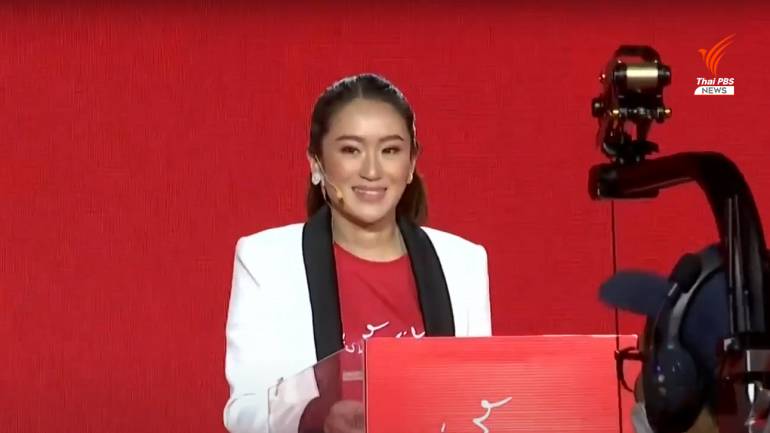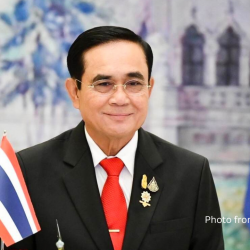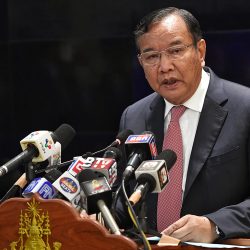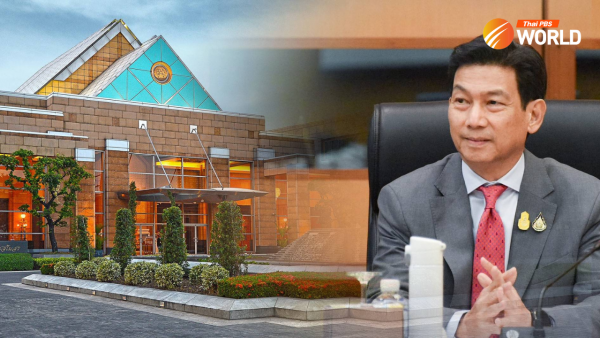Pheu Thai Party unveils its 10-point “think big” manifesto

Thailand’s opposition Pheu Thai Party has unveiled its ambitious 10-point “think big” manifesto, which envisages, among other things, a minimum daily wage of 600 baht, a minimum monthly salary for a new graduates of 25,000 baht, an average annual income of 200,000 baht for every working citizen, a 5% annual economic growth rate and free medical care for all by the year 2027.
At an extraordinary general meeting of the party today, Pheu Thai Party’s advisory chair for public participation and innovations and head of the “Pheu Thai Family”, Paetongtarn Shinawatra, aka “Ung-ing”, told party members that the party has to “think big” to rehabilitate the country and to take Thailand forward, after it has declined politically, socially and economically over the past several years.
She said that, if the party thinks small, there is no way that Thailand will be able to cope with its myriad pressing problems, which have dogged the country for years.
Between now and 2027, she said that the party hopes that the Thai people will see many changes for the better in this country.
The party will also introduce artificial intelligence (AI) and precision agriculture technologies to improve agricultural development, reducing its dependence on chemical fertilisers and increasing income for farmers. Tourism will be expanded to generate income, estimated at three trillion baht per annum.
The party envisages that Thailand will become the innovations hub of ASEAN and use a digital currency, issued by the central bank. Illegal narcotics will be wiped out and all drug addicts will have access to treatment.
Prices of energy, such as fuel and electricity charges, will be reduced once the party is in power, claimed Paetongtarn. She also said that, by the year 2027, Thailand will be a full democracy with the prime minister elected by parliament, decentralisation of power and administration to local administrative bodies and even the election of provincial governors.






